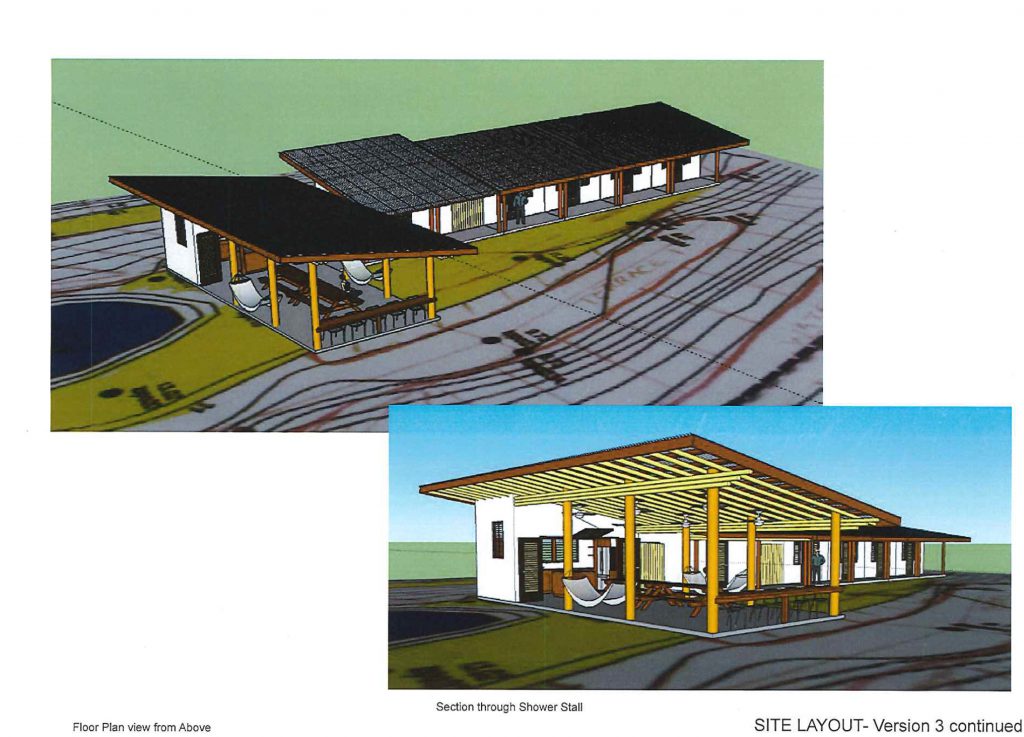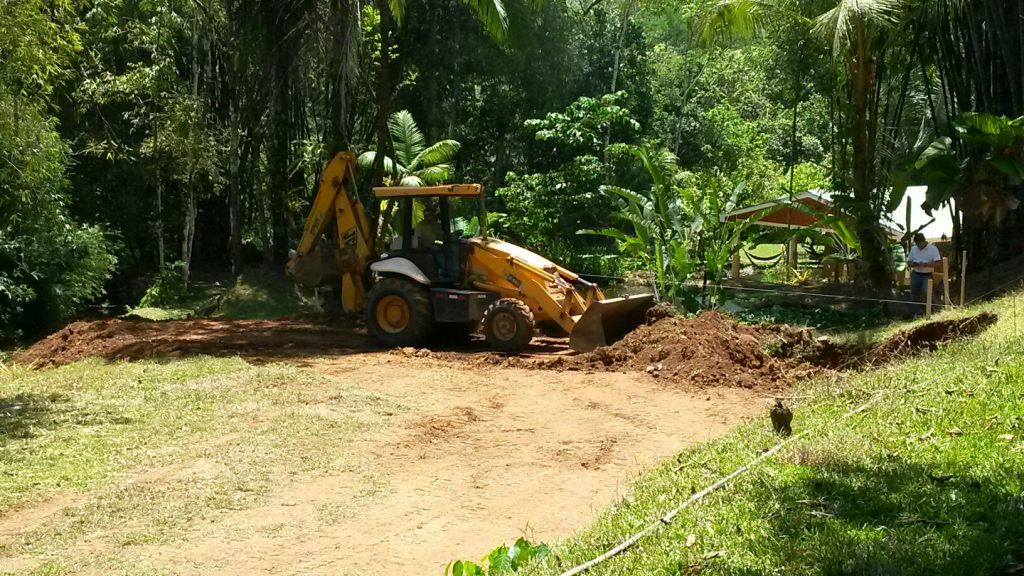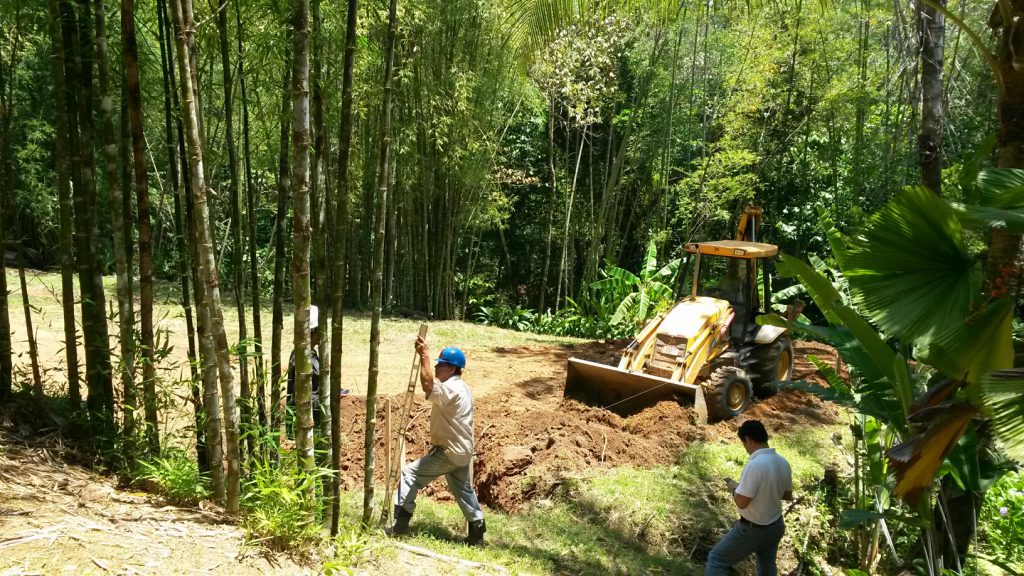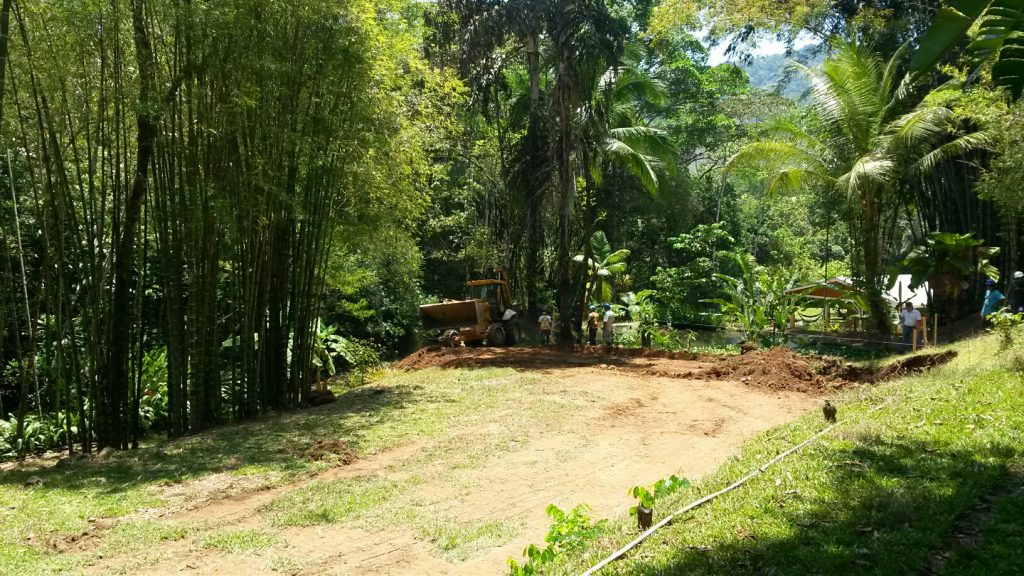Dorm Construction at Pitzer’s Firestone Center for Restoration Ecology in Costa Rica
March 2017
 I am delighted to announce that after a two-year fundraising and planning process, we recently broke ground on a replacement dorm structure for students and faculty conducting research and teaching courses and/or workshops at Pitzer’s Firestone Center for Restoration Ecology (FCRE) in Baru, Costa Rica. The new dorm structure will allow the FCRE to function more effectively as a bona fide field station, and expand pedagogical innovations that can lead to greater use of the FCRE by both STEM and non-STEM faculty and students. In addition, as one of the only tropical field stations on the Pacific Coast of Costa Rica, we are now in a position to host local research teams, whether from local schools or institutions of higher education.
I am delighted to announce that after a two-year fundraising and planning process, we recently broke ground on a replacement dorm structure for students and faculty conducting research and teaching courses and/or workshops at Pitzer’s Firestone Center for Restoration Ecology (FCRE) in Baru, Costa Rica. The new dorm structure will allow the FCRE to function more effectively as a bona fide field station, and expand pedagogical innovations that can lead to greater use of the FCRE by both STEM and non-STEM faculty and students. In addition, as one of the only tropical field stations on the Pacific Coast of Costa Rica, we are now in a position to host local research teams, whether from local schools or institutions of higher education.
The previous dorm was deemed unfit and unsafe a number of years ago. As a result, student research teams were obliged to sleep in the FCRE classroom. Aside from these immediate needs, an external review of the FCRE noted that the lack of facilities and operating budget severely limited the FCRE’s potential to operate as a fully functional field station.
 The proposed replacement structure is very simple in design, consisting of three interconnected buildings: A dormitory of 4 rooms with a capacity of up to 4 persons per room, a gender neutral toilet block, and an open dining room/recreational area connected to a kitchen. The new structure incorporates non-load bearing bamboo elements in the interior, harvested from the FCRE’s own bamboo plantation.
The proposed replacement structure is very simple in design, consisting of three interconnected buildings: A dormitory of 4 rooms with a capacity of up to 4 persons per room, a gender neutral toilet block, and an open dining room/recreational area connected to a kitchen. The new structure incorporates non-load bearing bamboo elements in the interior, harvested from the FCRE’s own bamboo plantation.
In approving the project, the College administration made it clear that funding must be raised independently, such that no existing Pitzer budgets could be used. As a result, under the extraordinary leadership of Holly Preble, Senior Philanthropic Advisor, we were able to raise funds to not simply finance the construction project, but equally important, establish an endowment to support FCRE operations moving forward (when Diane Firestone donated the property to the College in 2005, no provisions were made for an operating endowment).
 Based upon an approved project budget of $170,000, we now have pledges that amount to an initial $225,000 endowment beyond the construction costs. As the endowment increases, we look forward to opening up the FCRE to a wide range of academic activities, not simply limited to STEM/Environmental research, but also to humanities or social science initiatives. For example, we are currently seeking external funding to support photography and creative writing workshops on site.
Based upon an approved project budget of $170,000, we now have pledges that amount to an initial $225,000 endowment beyond the construction costs. As the endowment increases, we look forward to opening up the FCRE to a wide range of academic activities, not simply limited to STEM/Environmental research, but also to humanities or social science initiatives. For example, we are currently seeking external funding to support photography and creative writing workshops on site.
Our lead donor, Lisa Bourgeault ’83, asked us to honor Emeritus Professor Ann Stromberg. Hence, I am delighted to inform you that the new dorm is being named Albergue Stromberg, an “albergue” being a shelter that welcomes visitors. Pending weather conditions, we anticipate a soft opening of the dorms this summer, with a more formal hard opening to take place at a date to be determined.
I should also acknowledge the ongoing generosity of Diane Firestone, who donated vital funds toward the architectural design and planning components.
Last, my sincere thanks for the extraordinary support of the following individuals: Juan Carlos Araya, Costa Rica program director, who has undertaken exhaustive work meeting with engineers, architects, construction companies and attorneys, alongside developing the bid documents; Holly Preble, Senior Philanthropic Advisor, who, as noted above, has been markedly successful in working with prospective donors; and Don McFarlane, professor of biology and FCRE research director, for his advice and counsel and his never-ending commitment to advancing the FCRE as an important and active field station.
 Best,
Best,
Michael Ballagh
Associate Vice President
Study Abroad and International Programs